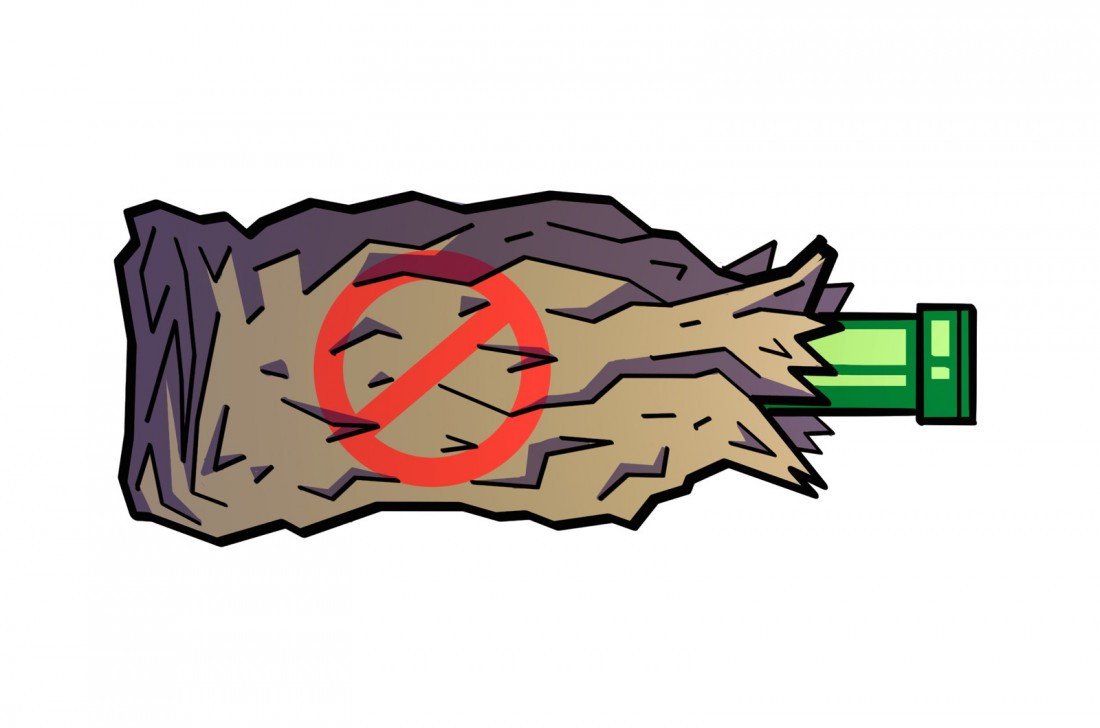Dry wit
Enough dancing around the (other) “A” word
There’s a phrase I’ve heard tossed around far too casually by drinkers and sober people alike. It sometimes starts with justifications about why someone’s drinking so much, or not at all, and then it ends with “...BUT I’m not an alcoholic.” This stigmatizing tagline needs to stop.
I’m not sure how to offer this qualifier without falling into the same trap, but I should be clear that I don’t identify as an alcoholic. Others have said that I am or I was or I could be, and that possibility has never been far from my mind.
Many programs say “it’s a family disease.” I never knew my grandfather due to his alcoholism, and grew up in the shadow of that history. Alcoholism seemed far away but also too close, something I hoped would stay dormant but that I was always vigilant for. How would I know if I crossed that line?
When I got sober, I’d begun to despise the experience of being drunk or even tipsy. I resented the fact that I hated drinking, and – fully aware of the irony – drank more to prove that I could still do it. I knew that I was drinking to run away from a darker truth, a downward spiral that I (luckily) recognized as a pattern of alcoholism. That potential future scared the crap out of me. So I quit.
At the moment, it doesn’t serve me to identify as an alcoholic. Some counsellors have placed me on the addiction curve, with the caveat that I got out early. My “this isn’t bad enough to be a problem but I really don’t like it” could be seen as a moderately high rock bottom. Though that’s one way to see it, I’m pretty ambivalent about relating through that paradigm.
But it would also be harmful to other people in recovery to distance myself from the word “alcoholic” as well.
Yes, alcoholics in active addiction can wreak havoc on themselves and those around them. But alcoholics in recovery have helped me more than I could ever imagine, even without embracing the label myself.
Many of the folks I know in recovery, regardless of how they got sober or how they stay that way every day, have – to put it lightly – seen some shit. They’ve survived it, and also had to look back through the mess of addiction with intense clarity.
Recovering alcoholics have had to deal with healing on a personal level, while also occupying this marginal sober space in a world where “alcoholic” is a stigmatized spectre, or a fear, or a pointed flag atop a mountain of denial.
Through getting sober, and then doing the work of trying to stop numbing out and becoming a fully feeling human being again, I’ve had the incredible fortune of sharing stories with many who’ve had very different experiences than me. I’ve also talked to many who, like me, were so dissatisfied with the role of drinking in their life but felt that it wasn’t bad enough just yet.
We should be able to see a way out without having to suffer through the worst first. In a world filled with personal essays and addiction horror stories, our own travails may feel meagre and incomparable. But this isn’t the Suffering Olympics. Rock bottom, or bad enough, can be wherever you find it.
And that label of Alcoholic is so much more than a punchline. It could be a way out of addiction, or a way into a community who can help you make sense of sober life.
Anastasia Chipelski is the Managing Editor at The Uniter. She’s happy to quit things that get bad enough and to talk to other people who’ve done the same.
Published in Volume 70, Number 12 of The Uniter (November 26, 2015)







